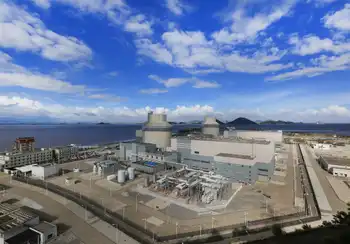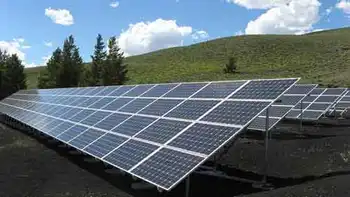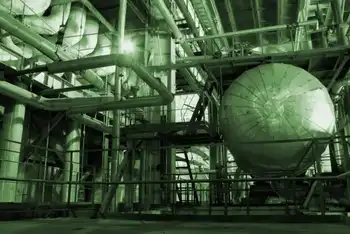NIMBY: Nukes In My Backyard
By Investor's Business Daily
NFPA 70e Training - Arc Flash
Our customized live online or in‑person group training can be delivered to your staff at your location.

- Live Online
- 6 hours Instructor-led
- Group Training Available
Oddly, Gore does not mention nuclear power, a source from which we already get 20% of our electricity and from which we could get more, thanks in part to the development of a new type of power plant that compares roughly to the evolution from the room-size vacuum-tube computers of the 1950s to today's laptops.
Using technology developed at the Los Alamos National Laboratory and licensed from the U.S. government, New Mexico-based Hyperion Power Generation Inc., has taken its first orders for miniature nuclear power plants that could literally fit in your backyard.
The module produces about 70 megawatts of thermal energy or 27 megawatts of electricity via steam turbine, enough to power about 20,000 American-style houses.
"Our goal is to generate electricity for 10 cents a watt anywhere in the world," says John Deal, chief executive of Hyperion. They will cost approximately $25 million each. For a community with 10,000 households, that is a very comfortable $250 per home."
The units are factory-sealed, can be delivered by truck and are buried underground. Like a car battery, there are no moving parts and no danger of a Chernobyl-type event. The module uses very low enriched materials that remain sealed for the five- to seven-year life of the module. It's also terrorist-proof.
Other companies are working on similar nuclear projects, large and small. Toshiba is reportedly working on a small-scale design for Galena, Alaska. NuScale Power, a startup spawned in the nuclear engineering department at Oregon State, was the first U.S. company to submit plans to the Nuclear Regulatory Commission, which regulates all domestic nuclear power plants.
NuScale's design is somewhat larger. The whole unit is 65 feet long, with the reactor unit taking up 14 feet of that. Each 45-megawatt electrical unit would generate enough power for about 45,000 homes. It can be mass-produced entirely in the U.S., an important factor since our domestic industry has atrophied since Three Mile Island, and the worldwide backlog for power plants is huge.
Such mini-nukes can be delivered anywhere in the world and have a multitude of uses. For example, an estimated 25% of the world's population is without adequate drinking water; mini-nukes could provide the power in remote areas to pump, purify and circulate clean water.
Their footprint compared to wind and solar plants is like comparing a Chihuahua to Godzilla. Modern turbines can be as tall as 400 feet and carry 130-foot, seven-ton, endangered-bird-slicing blades. Building these wind farms requires five to 10 times more steel and concrete than a nuclear plant generating the same amount of power.
"Alternative" or "renewable" energies such as wind and solar are romantic notions, but bump up hard against reality — including the fact that just a single 50-megawatt wind facility requires an appalling 4,000 acres of land covered with these enormous towers that work only when the wind is blowing.
In his op-ed, Gore noted that "President John F. Kennedy challenged our nation to land a man on the moon within 10 years." The Manhattan Project, which harnessed nuclear power for war, took half that time.
How about a new Manhattan Project — not one that subsidizes tilting at windmills or putting food in our gas tanks, but that encourages the rapid development, licensing and mass production of an existing clean and virtually limitless source of energy?











